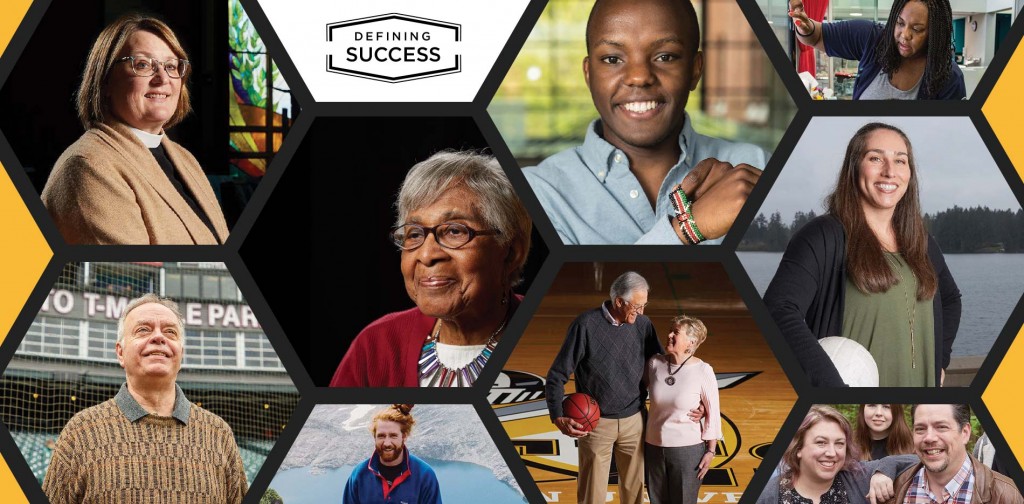Page 519 • (12,471 results in 0.021 seconds)
-
September 15, 2008 What does being a Lute really mean? A record crowd of faculty, staff and continuing students welcomed over 1,000 new students with a standing ovation as they processed into opening Convocation on Sept. 8.Bruce Bjerke ’72, vice-chair of the Board of Regents brought greetings on behalf of the regents and spoke of the character of PLU where all care deeply about things beyond themselves. He also reminded new students that in the first days of the academic year they will be
-
February 9, 2012 Philosophy Department to host Food Symposium PLU’s Philosophy Department will host a two-day Food Symposium on Feb. 20 and 21. On Monday, Feb. 20, there will be closed sessions for invited participants only, but on Tuesday, Feb. 21, PLU students, staff, and faculty, as well as the greater community, are invited to attend the sessions which cover a variety of topics on food and food ethics. The second day of the symposium features more than a dozen speakers, including keynote
-
Planning Team Special Thank You SPECIAL ACKNOWLEDGEMENTS: The following individuals are recognized for their extraordinary assistance and counsel in planning for the 2012 symposium. Loren J. Anderson, President, Pacific Lutheran University Joel E. Baker, Port of Tacoma Chair, Environmental Sciences, University of Washington Tacoma Cameron D. Bennett, Dean School of Arts and Communication, Pacific Lutheran University Board of Directors, The Thor Heyerdahl Institute, Knut Phil, Chair Beate Bjørge
-

Intersections: Called to Place Posted by: abryant / November 10, 2021 November 10, 2021 Cover art Be Nourished Mosaic by Patrick and Luisa Hansel Intersections, Number 54, Fall 2021Intersections is a publication by and largely for the academic communities of the twenty-seven institutions that comprise the Network of ELCA Colleges and Universities (NECU). Each issue reflects on the intersection of faith, learning, and teaching within Lutheran higher education. It is published by the NECU, and
-
``Religious Transformations in Indian Territory``Dr. Jennifer Graber, Associate Professor, University of Texas at Austin November 6, 2019 7-8:30pm Karen Hille Philips Center for the Performing Arts Free and Open to the Public Encounters between Americans and Kiowa Indians in the 1870s resulted in religious transformation. This talk considers what happened to members of the Society of Friends, or Quakers, who worked on behalf of the U.S. government to “civilize” and evangelize Plains Indian
-
Symposiumnoun : a conference or meeting to discuss a particular subject From the Greek symp-po-sium : a drinking party or convivial discussion, especially as held in ancient Greece after a banquetWhy a Symposium?The biennial international symposium at Pacific Lutheran University is one of the ways that the Wang Center supports the university’s goal of being an ever more globally focused university. PLU is nationally recognized for its international study away experiences that immerse students
-

trickier. Modesty plays a part, to be sure. But PLU compels community members to think broadly and deeply about what success might mean throughout their lives. We talked to Lutes in various stages of life about how they see success. Here are their thoughts. Dream it, do it I would love to help at least 53 million Kenyans to college by the time I die. Moses Mbugua '20“Success is being able to have a dream,” says Moses Mbugua ’20, “and being able to actually accomplish it.” Mbugua grew up in Kent and
-

Mike Frechette Dean of Enrollment Management and Student Financial Services Phone: 253-535-7161 Email: frechemt@plu.edu Professional Biography Education M.A., English/Humanities, University of Chicago B.S, English Education, Boston University Biography Originally from Southeastern Massachusetts, Mike is now completely at home in the Pacific Northwest. He lives in University Place with his spouse and two young children. He has spent the vast majority of his career working in student financial
-
History Learning OutcomesAll history majors must develop a breadth of historical knowledge that represents awareness of the diversity of world civilizations. This is now assessed through the requirement that students take at least one class in each of three geographic areas (non-west, European, and U.S.). Our new requirements are thematically structured and the revised outcome will address the importance of having students learn to compare and connect historical inquiries that reflect a range
-
Choosing your MajorChoosing a MajorExplore your InterestsWho am I?What are my options?I've Decided...Now What?I'm Still not SureChoosing a Major Where Do I Begin? Choosing a major is an important decision, one that should not be hurried. The time that you give to the PROCESS of making this decision will be well spent. Making a major decision too quickly or without enough information may only lead to frustration, especially if you later find that the field bores you or that you don’t have the
Do you have any feedback for us? If so, feel free to use our Feedback Form.


